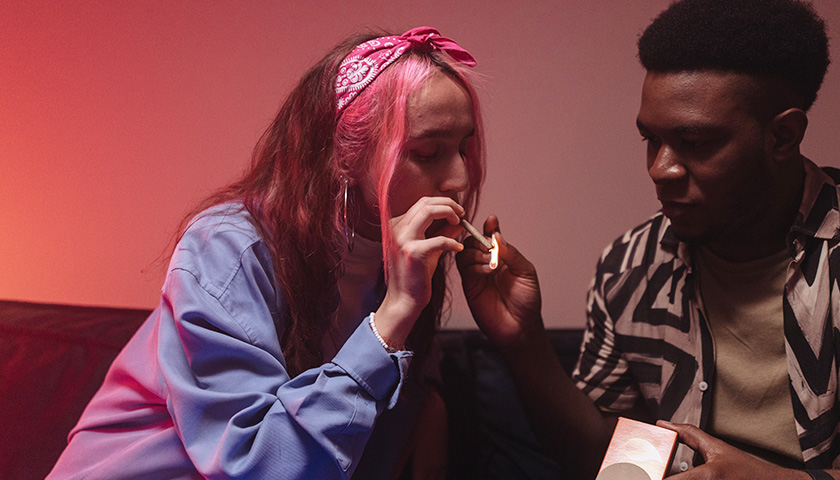by Evan Stambaugh
Psychiatrists are expressing their concerns over a proposed bill in the Minnesota House of Representatives that would legalize recreational marijuana for adults 21 and up.
Letters submitted to members of the House Human Services Policy Committee, two from licensed psychiatrists and one from a licensed alcohol and drug counselor, argued that HF 100 fails to take into account the effects of cannabis on younger people’s brains.
Drs. Israel Sokeye and Sara Polley, psychiatrists who specialize in helping children and adolescents, called for raising the age requirement for recreational marijuana to age 25.
“We know from research that using cannabis as a teen or young adult alters brain development, with impacts that can last a lifetime,” wrote Dr. Polley, who works for the prestigious Hazelden Betty Ford Foundation. “In addition, cannabis use under the age of 25 can derail development of the prefrontal cortex. This is the part of the brain that oversees regulation of emotions and impulses and that helps with decision-making, attention and concentration.”
She noted that young people who use cannabis “are at increased risk of developing schizophrenia,” as well as “lifelong depression and anxiety.”
Both psychiatrists also urged a consideration of strict potency limits.
“We can have rules about potency limits. We can limit or prohibit product advertising in our state. We can limit public consumption of cannabis, so our young people don’t grow up regularly seeing and smelling it. I believe a thoughtful collection of guardrails can make a difference in reducing the negative impact on public health that we should expect with any major expansion in access to cannabis,” Dr. Polley wrote.
On behalf of the Minnesota Society of Child and Adolescent Psychiatry (MSCAP), Dr. Sokeye noted that ingesting high levels of THC, the primary substance that gives cannabis smokers a “high,” changes the brain and even causes a “decrement in intelligence over time.”
“For this reason, MSCAP appeals to the legislature to cap the potency at 15% for the plant and flower,” he wrote.
Randy Anderson, an alcohol and drug counselor in long-term recovery himself, pointed out in his Monday letter to the committee that “selective breeding” of cannabis plants “has resulted in an average marijuana potency of 20 percent THC, [while] some strains exceed 30 percent.”
Last July Minnesota legalized edibles containing a maximum of 5 milligrams of hemp-derived THC. Medical marijuana has been legal since 2015 to help treat certain serious conditions.
Democratic lawmakers have previously stated that the legalization of recreational marijuana would be a top priority on their legislative agenda. Gov. Tim Walz tweeted at the beginning of the new session this January that he was “ready” to sign a bill to that end.
According to the Minnesota Department of Health, hospital-treated marijuana poisoning has notably risen since 2016, especially among teenagers and children. Such incidents for children 12 and under were “relatively low” from 2016 to 2020, but then suddenly tripled from 2020 to 2021, overlapping with the implementation of harsh COVID restrictions.
Calls to poison control about cannabis poisoning for children 12 and under also jumped by 198% — 63 calls to 188 — from 2021 to 2022. In 2016 there were zero such calls recorded.
– – –
Evan Stambaugh is a freelance writer who had previously been a sports blogger. He has a BA in theology and an MA in philosophy.
Photo “Young Man and Woman Smoking Marijuana” by Pavel Danilyuk.








